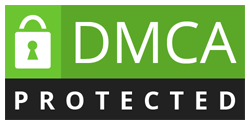Call money ( Simple Quick Loan)
Call money ( Simple Quick Loan)
Call money
Not to end up being confused with Call choice or Telephone card.
Phone money is minimum 5% short-term financial repayable on demand, having a
maturity period of someone to fourteen days or immediately to fortnight. It is actually
used for inter-bank dealings. The money that is lent for just one day in
this market is called "call money" and, if it exceeds eventually, is
 referred to because "notice money. "
referred to because "notice money. "
Commercial banks need to maintain a minimum cash balance referred to as the cash
reserve percentage. Call money is a way banks lend to one another to
be able to keep the cash reserve percentage. The interest rate compensated on call
money is called the call rate. It's a highly volatile rate which varies
from day to day or even from hour to hr. There is an inverse
relationship between call rates along with other short-term money market
instruments for example certificates of deposit as well as commercial paper. A increase in
call money rates makes other causes of finance, such as industrial paper
and certificates associated with deposit, cheaper in comparison for banks to boost funds
from these resources.
In the international marketplace, the term usually describes the short term
financing by financial institutions to brokers for sustaining the margin
account. It's different from the term 'loan' since the schedule for the
payment of interest and principal isn't fixed. Since, the loan could be
called at any period, it is riskier than other styles of loans. It assists in
meeting liquidity requirements at short notice.
Call money
Not to end up being confused with Call choice or Telephone card.
Phone money is minimum 5% short-term financial repayable on demand, having a
maturity period of someone to fourteen days or immediately to fortnight. It is actually
used for inter-bank dealings. The money that is lent for just one day in
this market is called "call money" and, if it exceeds eventually, is
 referred to because "notice money. "
referred to because "notice money. "Commercial banks need to maintain a minimum cash balance referred to as the cash
reserve percentage. Call money is a way banks lend to one another to
be able to keep the cash reserve percentage. The interest rate compensated on call
money is called the call rate. It's a highly volatile rate which varies
from day to day or even from hour to hr. There is an inverse
relationship between call rates along with other short-term money market
instruments for example certificates of deposit as well as commercial paper. A increase in
call money rates makes other causes of finance, such as industrial paper
and certificates associated with deposit, cheaper in comparison for banks to boost funds
from these resources.
In the international marketplace, the term usually describes the short term
financing by financial institutions to brokers for sustaining the margin
account. It's different from the term 'loan' since the schedule for the
payment of interest and principal isn't fixed. Since, the loan could be
called at any period, it is riskier than other styles of loans. It assists in
meeting liquidity requirements at short notice.























No comments